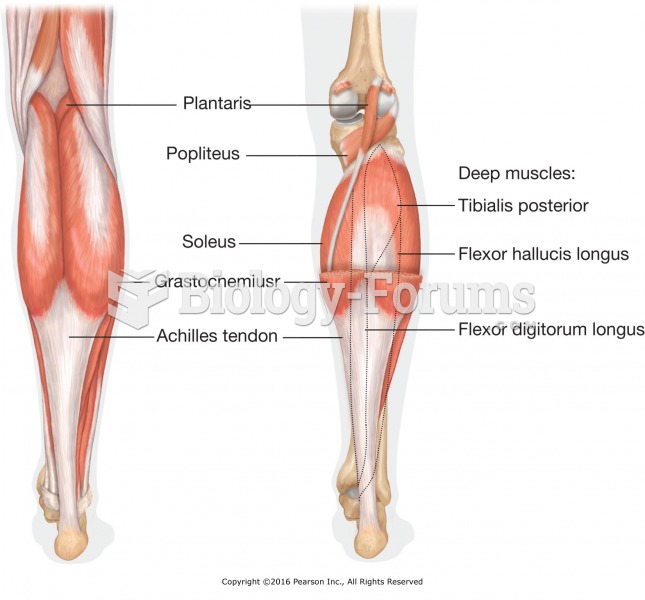|
|
|
Most childhood vaccines are 90–99% effective in preventing disease. Side effects are rarely serious.
There are 20 feet of blood vessels in each square inch of human skin.
When Gabriel Fahrenheit invented the first mercury thermometer, he called "zero degrees" the lowest temperature he was able to attain with a mixture of ice and salt. For the upper point of his scale, he used 96°, which he measured as normal human body temperature (we know it to be 98.6° today because of more accurate thermometers).
The calories found in one piece of cherry cheesecake could light a 60-watt light bulb for 1.5 hours.
Hyperthyroidism leads to an increased rate of metabolism and affects about 1% of women but only 0.1% of men. For most people, this increased metabolic rate causes the thyroid gland to become enlarged (known as a goiter).







